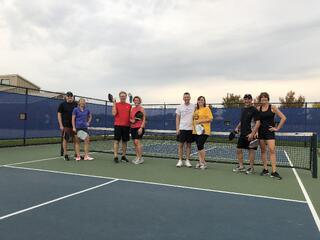It’s not uncommon to feel a little – or a lot – “crispy” after a busy day, week or month, especially these days. Even the highest performers, with the highest capacities, can get burned out and need a break. Those who are most successful know what they need to do to refresh and reenergize.
Without some sort of a break, mental or physical fatigue can set in. Identifying it before it’s a problem is key and something that all leaders need to pay attention to — not just for themselves, but for their team members as well.
Some professionals can feel it and make adjustments. Others need more coaching. Encourage your team members to talk about it. Here are some signs to watch for:
- Less energy
- More errors or mistakes
- Increased frustration
- More irritability
- Spending more time working with less accomplished
 I recently recorded a podcast about mental health in the workplace and learned a lot from an expert. (Check it out here). Overachievers tend to be at a higher risk of burnout.
I recently recorded a podcast about mental health in the workplace and learned a lot from an expert. (Check it out here). Overachievers tend to be at a higher risk of burnout.
You can be psychologically hardy and still mentally need a break. Well-timed breaks can help increase and sustain your well-being.
Know what a break means to you. For some, it is a one-week vacation. For others, it’s a weekend outdoors or with family. Personally, I like to be active with family and friends –  biking with my wife, playing pickleball with friends or going for a walk.
biking with my wife, playing pickleball with friends or going for a walk.
It’s important to understand what refreshes and recharges you. People will need different levels of refreshment.
HOW TO RESPOND
It’s important to prevent people from reaching burn out. When they do, it’s harder and takes longer to recharge. If unaddressed, it can also lead to health issues.
We need to take this seriously as professionals and leaders. Here are some steps to take:
- How are you getting recharged?
Proactively ask this question when you know someone (or yourself) has been heavily engaged in a key project and juggling multiple priorities. This can make people crispy. Recognize thresholds and proactively take action. - Give permission to check out.
People sometimes need permission to check out or take a mental break from anything work related. Of course, it can be hard for some, but it can make all the difference. Setting and maintaining boundaries are essential to being a high performer. - Ask for a fair assessment.
Some people will keep taking on tasks, especially when they come from certain people. When I make requests, I intentionally ask them not to tell me what they think I want to hear. Instead, I want to know how it really is. Keep an eye out for “yes” people. - Encourage breaks or time off.
When we’re in the middle of a project or event, we have a tendency to want to power through. Sometimes that makes sense. But, sometimes we need a breather. It’s important that we build in time away. We always come back more productive. - Encourage reasonable work hours.
This has gotten harder with the evolution of technology and the ability to work anywhere, any time. We all need to be more intentional about maintaining a balance.
It is easier to get overwhelmed, or even crispy, with remote work environments, added stress at home and a barrage of national news. What happens at home can be felt at work and vice versa. It’s important we support our team members, knowing it will look different for each individual. Help people set boundaries for themselves and respect the boundaries set by others.
